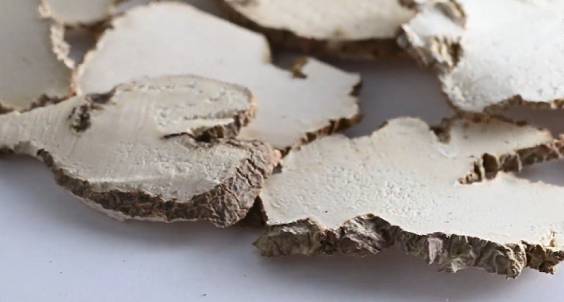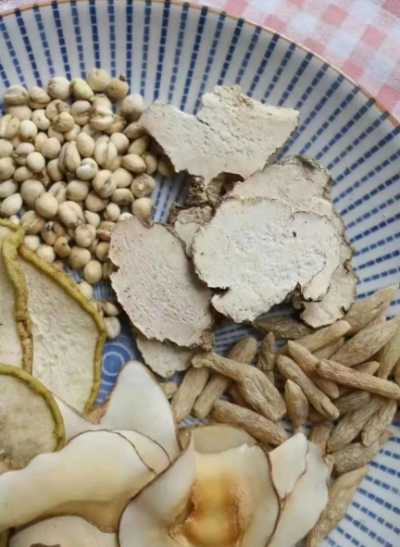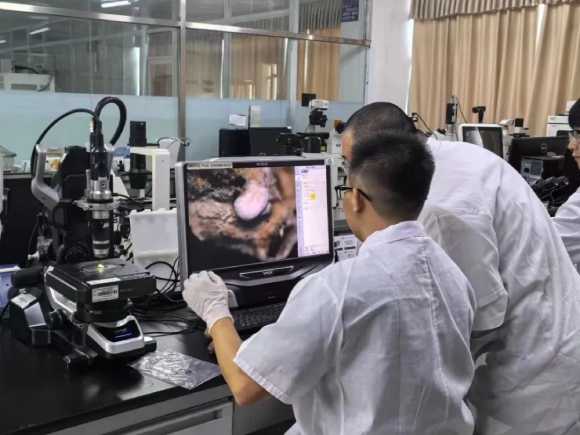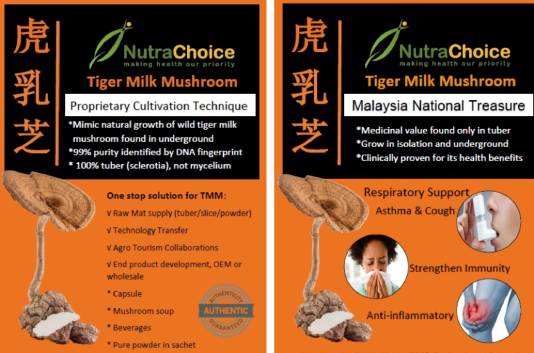Tiger Milk Mushroom Hainan Free Trade Port special meeting
Tiger Milk Mushroom Hainan Free Trade Port special meeting. The Chinese version of the magical Tiger Milk Mushroom industry is launching a sincere tribute on the day of the Free Trade Port’s closure and operation.
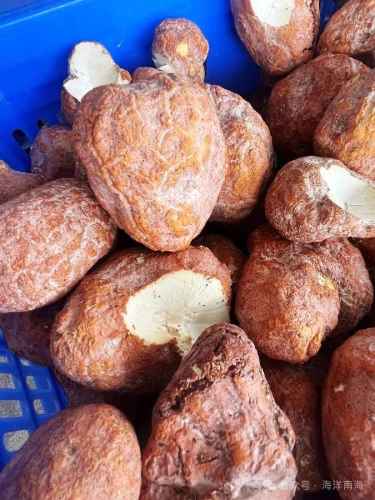
The Tiger Milk Mushroom is a medicinal and edible fungus widely used by the indigenous people of Malaysia, and is hailed as Malaysia’s national treasure.

According to folklore, young tigers have sharp teeth, and tiger mothers fear pain, so when nursing their cubs, they allow milk to drip onto the ground for the cubs to lick. The tiger milk that falls onto the soil reacts with the air to form fungi, which gradually develop into sclerotia and fruiting bodies through natural processes.

In its early growth stage, the tiger milk mushroom is white and grows slowly, with mycelium almost parallel to the surface of the culture medium. In later stages, the mycelium becomes denser, forming a mycelium layer that turns yellowish-brown. The mycelium slowly condenses into sclerotia underground, resembling tiger claws in shape.
The essence of the tiger milk mushroom lies in its sclerotia, which differ from ordinary reishi mushrooms that rely on their caps.
During Zheng He’s voyages to the South Seas during the Ming Dynasty, he once stationed his fleet at Sam Po Mountain in Malacca. While searching for herbs on the island, the accompanying medical officers discovered a type of ganoderma plant, which would later be known as the tiger milk mushroom. They observed its unique efficacy and informed the local residents of its use.
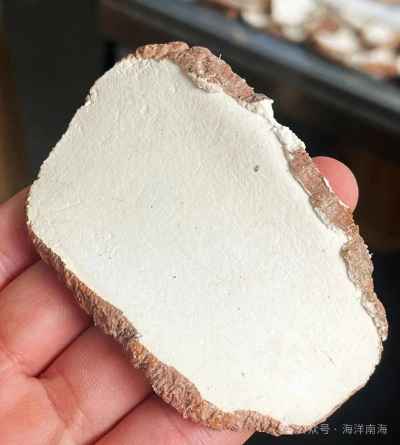
Modern medical research has revealed the primary benefits of the Tiger milk mushroom:
1. Supports immune system function.
The Tiger milk mushroom is renowned for its exceptional immune-modulating properties. Preliminary clinical trials suggest it may have anti-tumor effects.

2. Promotes cardiovascular health.
The Tiger milk mushroom helps maintain heart health and prevent heart disease and vascular issues.
3. Regulates mood and stress.
Its natural stress-relieving properties help alleviate anxiety and enhance psychological resilience.
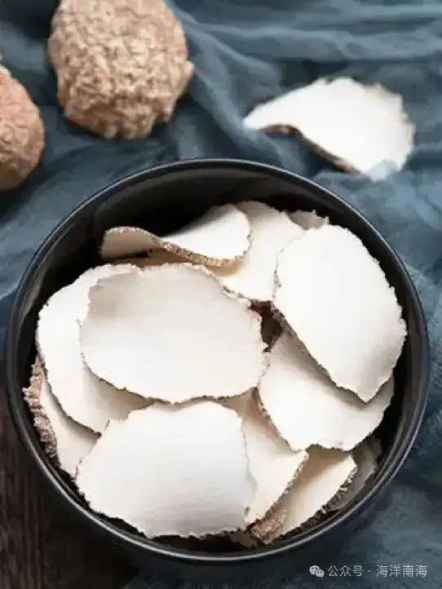
4. Benefits skin health.
The benefits of the Tiger milk mushroom for the skin extend beyond its anti-inflammatory effects to include anti-aging benefits.
5. Enhances brain function.
The Tiger milk mushroom can enhance memory, improve focus, and may even help prevent cognitive decline.
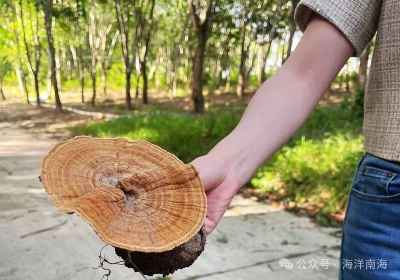
In Southeast Asia, Tiger milk mushroom has a wide range of applications. It is hailed as a “national treasure” herbal medicine in Malaysia and has been an integral part of local life for over 500 years. Approximately 80% of households regularly purchase it for daily use in stews, soups, and as a beverage. Tiger milk mushroom is particularly renowned for alleviating coughs and respiratory issues, making it an essential health supplement in Malaysian households.
In Thailand, it is combined with spices to create herbal beverages; in the Philippines, high-end resorts feature it as a signature health experience.
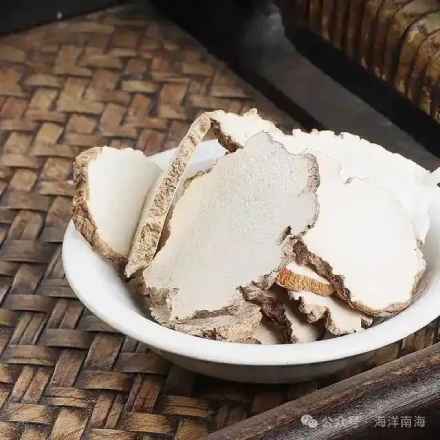
In Japan, Tokyo’s upscale department stores list Tiger milk mushroom extract capsules as their flagship health products, with imports to Japan reaching US$5 million in 2023, and the market size expected to grow at an annual rate of 15%-20% over the next five years. In South Korea, the market focuses on its liver-protective properties, targeting high-end consumer groups.
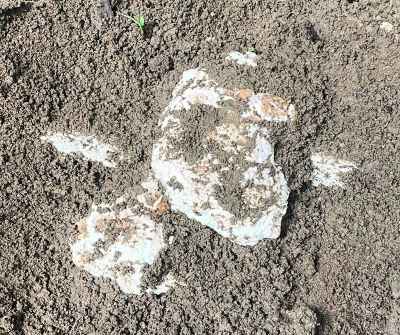
In regions like Guangdong and Fujian, where soup-making culture is prevalent, Tiger milk mushroom is paired with ingredients like pork ribs and chicken to enhance the health benefits of soups, becoming a new favorite in home kitchens and driving daily consumption demand.
Prior to 2022, China’s Tiger milk mushroom market heavily relied on imports from Malaysia, with wild dried products priced as high as 500-1,000 yuan per pound, giving Malaysia full control over pricing and quality standards. Meanwhile, Tiger milk mushroom has not yet developed into a large-scale industry in Malaysia.
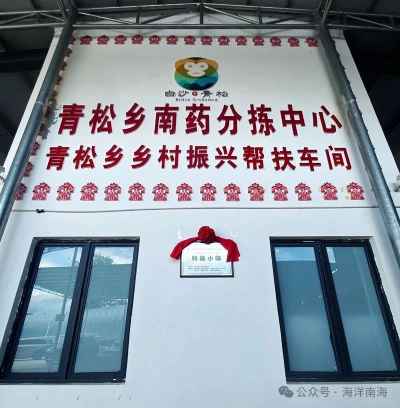
Imported Tiger milk mushroom primarily relies on wild resources. In recent years, with the surge in health-conscious consumption demand, it has faced depletion due to overharvesting.
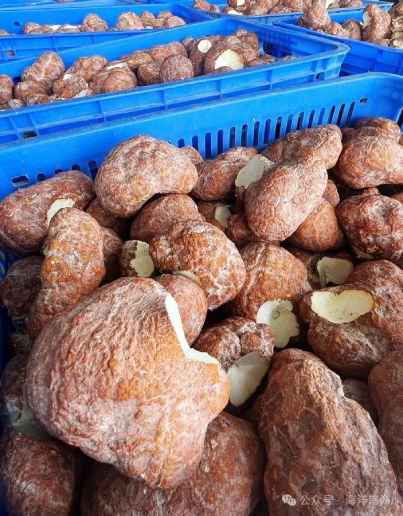
With the successful domestication of the Hainan-specific subspecies of Tiger milk mushroom by the Chinese Academy of Tropical Agricultural Sciences (CATAS) team and other technological breakthroughs, this landscape has been completely transformed.
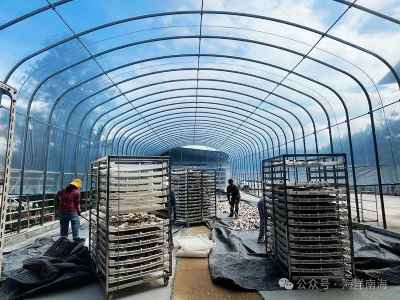
In recent years, the Hainan Provincial Government has adopted a forward-thinking approach, designating forest-based economy, particularly the Tiger milk mushroom industry, as a key priority for support. The issuance of the “Hainan Province Forest-Based Economy High-Quality Development Plan (2024–2030)” has clearly defined the development direction, objectives, and key tasks for the Tiger milk mushroom industry, guiding it toward scaled, standardized, and internationalized development.
Local governments have also introduced supporting policies. For example, Baisha County offers substantial subsidies per acre to encourage farmers to grow tiger milk mushrooms, significantly reducing the pressure of initial investment and stimulating enthusiasm for cultivation. At the same time, it provides preferential policies in areas such as land transfer and water and electricity supply, paving the way for the development of the industry.
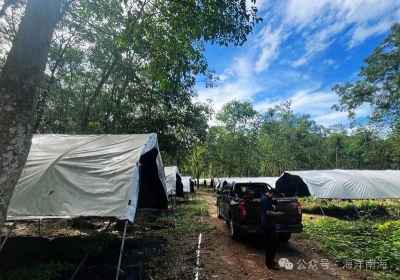
Recently, Professor Chen Zhixian, an advisor to the China International Association for the Promotion of Transnational Corporations, an advisor to the “Specialized, Refined, Unique, and Innovative” Center of the China Electronics Chamber of Commerce, the Strategic Chief Expert of the Hainan Investment Chamber of Commerce, the Chief Expert of the Hainan Leisure Agriculture Association, the Chief Expert of the Hainan Play Sea Alliance, and the Chief Expert of the Hainan Leisure Fisheries Association, was invited to visit the industrial base of Baisha Lishu Biotechnology Co., Ltd. (referred to as “Lishu Company”), the world’s largest supplier of Tiger milk mushrooms, located in Baisha.
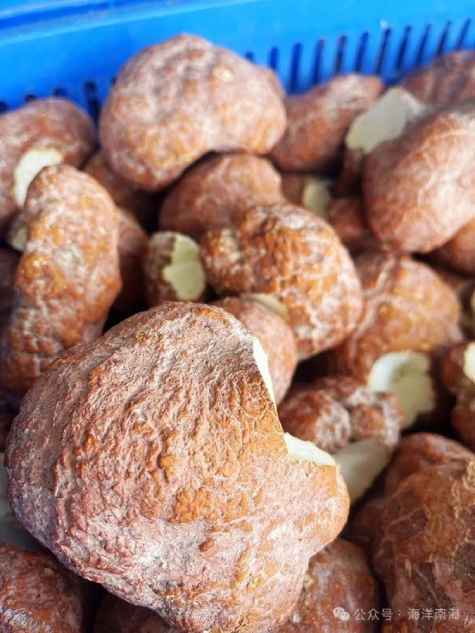
Lishu Company is a new type of ecological circulate agricultural enterprise specializing in the development, production, cultivation, and processing of tropical edible and medicinal fungi, while also engaging in agricultural product processing, sales, and research and development innovation.
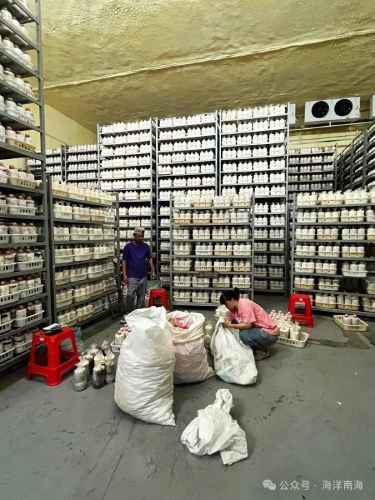
Lishu Company has its own research and development team and collaborates closely with multiple research institutions both within and outside the province. It leads in technology related to fungal strain development, cultivation, planting techniques, and product processing, holding 11 patents, with all products certified under ISO 9000 standards.
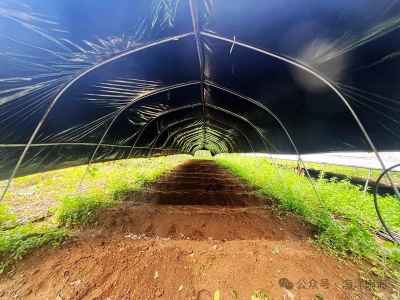
The company has established a 40,000-square-meter facility comprising fully automated edible fungus production workshops, intelligent temperature-controlled cultivation workshops, and fully automated sorting workshops, along with a 13,000-acre cultivation base. In 2023, it was designated as a Hainan Provincial Forest-Based Economy Demonstration Base and recognized as an innovative science and technology-based small and medium-sized enterprise, a high-tech enterprise, and a provincial “specialized, refined, distinctive, and new” enterprise.
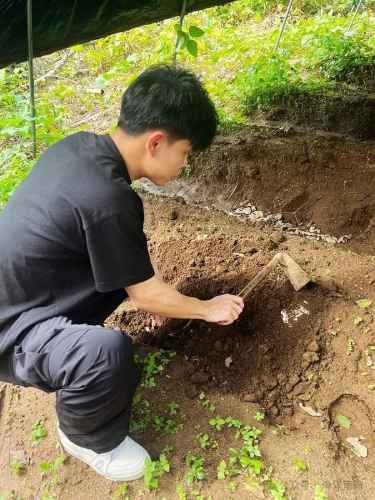
Lishu Company leverages Hainan’s unique climate characteristics, simulating wild ecological patterns, precisely controlling planting timings, and selecting high-quality mushroom strains to develop a sustainable “wild-simulated” forest-based cultivation model for Tiger milk mushrooms, creating Hainan’s distinctive ecological treasure.
As China’s only tropical island province, Hainan features a typical tropical monsoon climate characterized by abundant sunlight, ample rainfall, and evenly distributed seasonal precipitation. The island’s mountainous and hilly terrain features diverse soil types rich in minerals and trace elements, providing an excellent material foundation for Tiger milk mushroom cultivation.
Compared to traditional greenhouse cultivation, Lishu Company’s “under-forest wild-like cultivation” leverages technology to achieve large-scale production and scientific management, ensuring quality. Its ecological friendliness and sustainability far exceed those of greenhouse cultivation. In terms of ecological uniqueness, Hainan’s average annual temperature of 25°C, humidity of 80%, and frost-free period throughout the year provide an ideal environment for Tiger milk mushrooms.
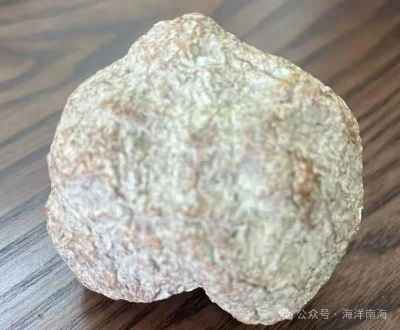
Compared to regions like Yunnan and Guangxi, Hainan’s diffuse light conditions and soil fertility are more conducive to the firmness of the mushroom flesh and the concentration of its components.
The widespread rubber plantations in Hainan provide an ideal environment for the growth of Tiger milk mushrooms. The tall canopy of rubber trees creates shade, blocking excessive direct sunlight and creating an environment with suitable diffused light. Decayed leaves continuously replenish the soil with organic matter, allowing Tiger milk mushrooms to thrive in a near “semi-wild” state.
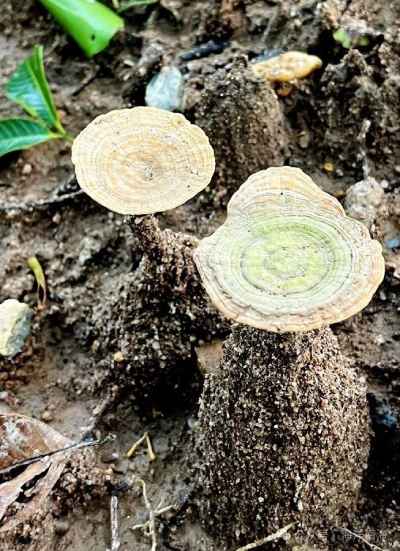
Testing shows that the polysaccharide content of Tiger milk mushrooms cultivated using Lishu Company’s “wild-simulated cultivation” method reaches up to 8%, outperforming ordinary varieties (such as Malaysian Tiger milk mushrooms).
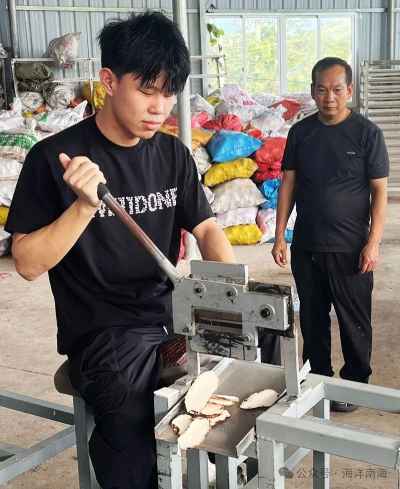
Additionally, Lishu Company strictly controls pollution throughout its under-canopy cultivation process, eliminating heavy metal residues at the source and avoiding the use of pesticides, ensuring the natural and healthy quality of its products.
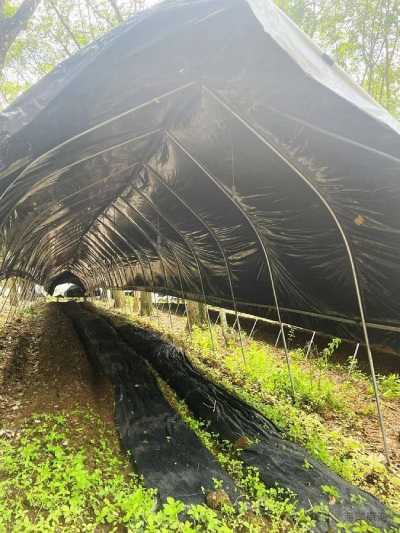
Bai Sha County has promoted the “wild-like cultivation” of Tiger milk mushrooms through a collaborative model involving the government, enterprises, and village collectives, establishing a complete industrial chain from spore cultivation, planting, to processing. Lishu Company employs scientific cultivation techniques and strict quality management to ensure the quality and efficacy of Tiger milk mushrooms, enabling them to fully absorb natural nutrients and moisture.
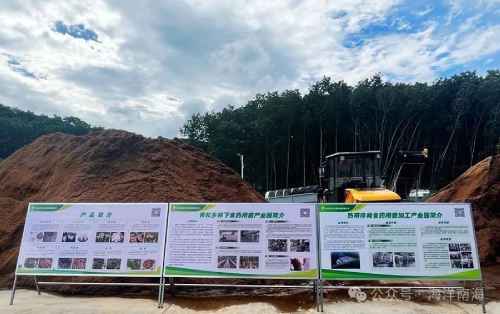
The company has also established multiple intelligent spore cultivation factories, significantly improving efficiency. This model not only increases production but also achieves a mutually beneficial symbiosis between rubber forests and mushrooms through the ecological cycle of returning mushroom bags to the forest.
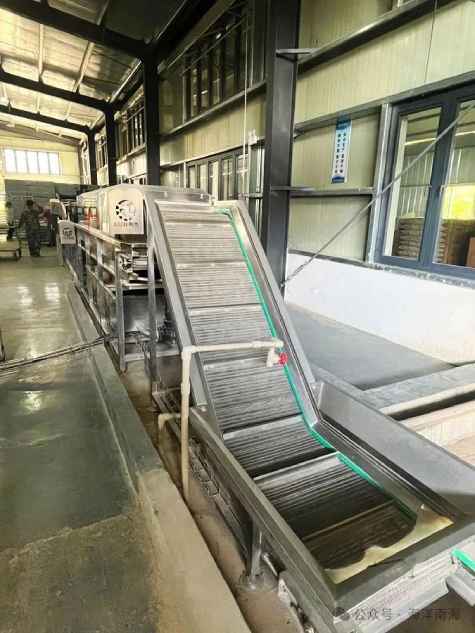
Data shows that the area of mushroom cultivation under forests in Baisha County has exceeded 13,000 acres, with Tiger milk mushroom yielding up to 1,500 pounds of fresh product per acre, forming a scaled, ecological cultivation system.
Currently, the only region globally to achieve artificial ecological cultivation and establish a complete industrial chain is Hainan’s “forest-based cultivation model.”
Hainan has become China’s largest supplier of Tiger milk mushrooms, and Lishu Company has carefully cultivated the “Hainan Tiger milk mushroom” brand.
Hainan provincial leaders place great importance on the development of the Tiger milk mushroom industry. Party Secretary Feng Fei inspected Lishu Company’s base and issued important instructions on the development of the industry.
Hainan’s first GEP (Gross Ecosystem Product) financing project was awarded to Lishu Company’s Tiger milk mushroom project.
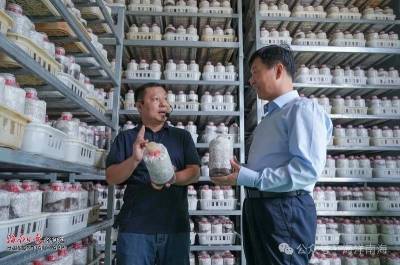
Hainan’s Tiger milk mushroom industry has entered a new phase of rapid development.
On July 18, the Office of the County Party Committee and the Office of the County Government of Baisha jointly issued the “Baisha Li Autonomous County Key Industrial Chain Leader System Work Plan (2025-2027)” (hereinafter referred to as the “Baisha Document”). The Baisha Document requires the formation of advantageous industries led by “chain leader” enterprises, accelerating the construction of a collaborative mechanism dominated by “chain leaders,” coordinated by “chain leaders,” and involving multiple parties.
The Baisha Document strongly supports the tiger milk mushroom industry and actively promotes the “rubber + mushroom” composite ecological planting model. It requires the promotion of high-quality mushroom cultivation across the country, emphasizing high-yield, stable, and high-quality planting models.
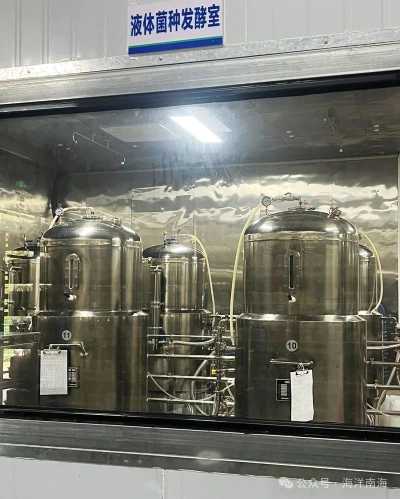
The document specifically emphasizes the need to prioritize the development of Lishu Company’s full industrial chain for mushroom production and sales, establish a mushroom product consumption center and trading platform, and create an integrated demonstration base for mushroom strain cultivation, mushroom cultivation, processing, and sales. The goal is to strive to become the “Hainan Edible and Medicinal Mushroom Health Product Production Demonstration Zone.” Efforts should be made to strengthen the integration of the primary, secondary, and tertiary industries, expand sales channels, extend the forest-based cultivation industrial chain, and promote the creation of the “Lishu” well-known brand.
The Baisha document designates the chain leader as a deputy director of the county People’s Congress Standing Committee and a deputy county magistrate, with the deputy chain leader being the director of the county Forestry Bureau. A dedicated working group has been established, led by the county Forestry Bureau and involving relevant departments such as the township governments, the county Development and Reform Commission, the county Natural Resources and Planning Bureau, the county Tourism and Culture Bureau, the county Agriculture and Rural Affairs Bureau, the county Finance Bureau, and the county Health Commission. The chain-leading enterprise is Lishu Company.
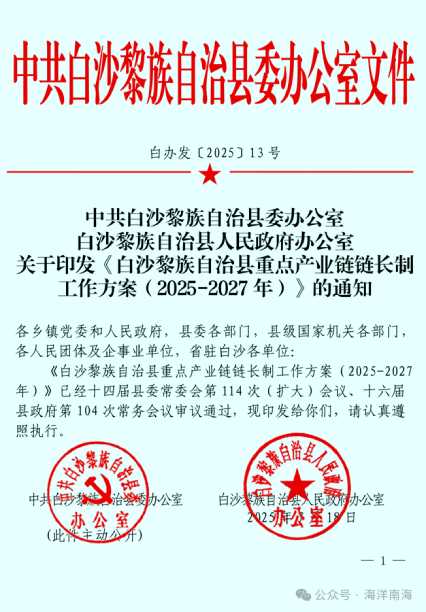
On July 23, the State Council Information Office held a press conference in Beijing, announcing that, with the approval of the Central Committee of the Communist Party of China, the full-island customs clearance operation of the Hainan Free Trade Port will officially commence on December 18, 2025.
On the same day, as the lead enterprise of the Baisha Tiger Milk Mushroom industry chain, Lishu Company immediately convened a special meeting. The company’s decision-making team and relevant experts jointly studied the latest policy guidelines on Hainan Free Trade Port construction announced at the State Council Information Office press conference and conducted in-depth discussions on the implementation of the “Baisha Document” issued by the Baisha County Party Committee and County Government.
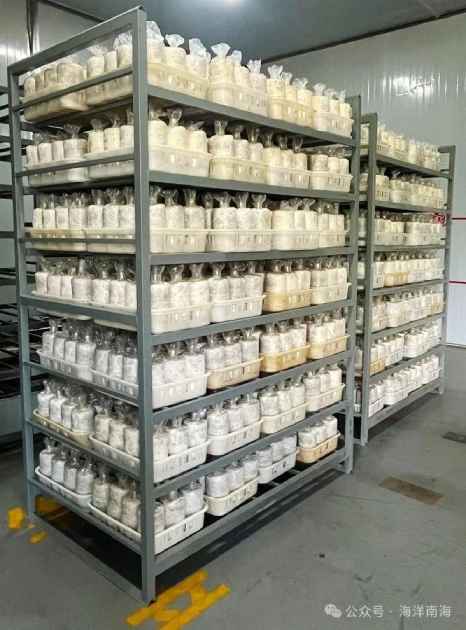
Professor Chen Zhixian pointed out at the meeting that the island-wide customs closure operation is a landmark project in the construction of the Hainan Free Trade Port, a major initiative to expand openness, and holds milestone significance. Hainan Provincial Party Secretary Feng Fei announced at the press conference that the construction of the Hainan Free Trade Port has entered a new phase of taking shape and gaining momentum, with island-wide customs clearance operations imminent. Building a modern industrial system with Hainan’s unique characteristics and advantages means leveraging Hainan’s comparative advantages to form industrial competitive advantages.
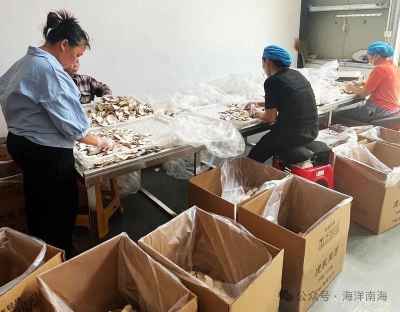
Secretary Feng Fei emphasized: “We sincerely invite global investors to come to Hainan to invest and develop their businesses. We will certainly provide excellent service and support to ensure that you can achieve your goals, attract talent, and thrive in Hainan.”
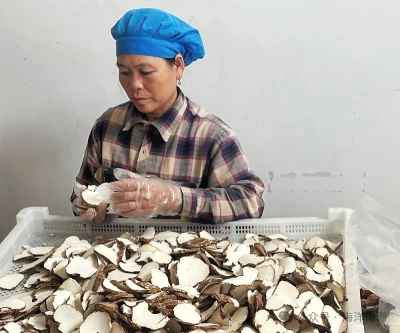
Professor Chen Zhixian emphasized that the Tiger milk mushroom industry should follow Secretary Feng Fei’s instructions in the next step, “leveraging Hainan’s comparative advantages” and “building industrial competitive advantages,” to become one of the pillar industrial chains of a “modern industrial system with Hainan’s unique characteristics and advantages.”
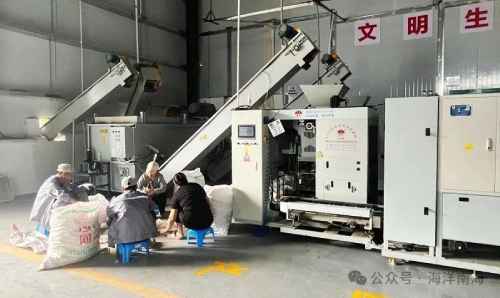
The decision-making layer of Lishu Company believes that the “Bai Sha Document” is a concrete implementation of Secretary Feng Fei’s commitment to “enabling everyone to achieve success, attract talent, and develop effectively in Hainan,” which has greatly inspired them and boosted their confidence.
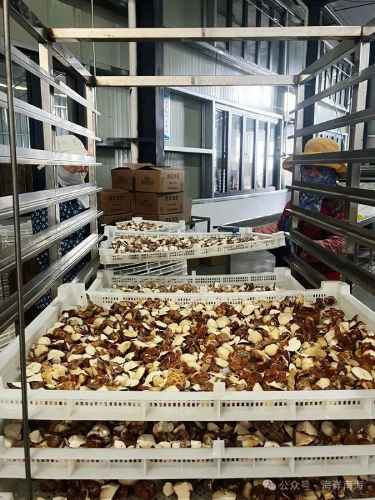
The decision-making layer and experts in attendance engaged in in-depth discussions on the Chinese objectives and standards for the development of the Tiger milk mushroom industry, the formulation of the industry’s 15th Five-Year Plan, building China’s strongest Tiger milk mushroom industrial chain, establishing the Bai Sha ” Bai Sha New Productivity Practice Base, constructing an ecological, intelligent, international, and experiential Bai Sha-style Tiger Milk Mushroom industry agro-cultural-tourism multifunctional comprehensive demonstration base, developing high-end biotechnology for Tiger Milk Mushroom, creating high-value-added product series, precisely targeting the needs of the “medicinal and edible” health-focused niche market, and seeking support from national ministries and financial groups.
The consensus reached at the meeting has been crystallized into a strategic and operational planning scheme, with specific measures and implementation pathways deployed. The aim is to leverage the strong international competitive advantage of China’s Tiger milk mushroom industry to celebrate the launch of the free trade port’s closed-border operations on December 18, 2025!
Content source: 海南南海公众号


